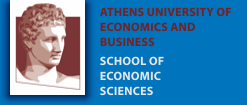| Abstract |
Economic rationality puts constraints on the preferences and/or degrees of belief (subjective probabilities or credences) of a decision maker (DM). This paper focuses on a belief-based definition of rationality (referred to as BEL): BEL requires DM's credences to be precise, unique, ascertainable, coherent and asymptotically accurate. We distinguish two types of DMs, the "expert"(DMs) and the "naive"(DMo) ones, and ask whether and how BEL may be achieved by either of them. To answer this we define two sets of cognitive/epistemic properties, Ys and Yo for DMs and DMo, respectively and show that Ys and Yo form the basis of the corresponding processes (referred to as Bayesian Confirmation (BC) and "trial and error, frequency-based (TEFB), respectively) by which DMs and DMo reach BEL. This means that on the assumption that Ys and Yo are empirically valid, the naive decision maker thinks probabilistically "as-if" she were the expert. An important difference between this paper and the related literature concerns the obscurity" of the "as-if" process. In our approach, this is a concrete process, namely TEFB, instead of an unspecified, "black box" one. We also argue that some of the assumptions in Yo (on which standard arguments of rationality - such as the Dutch Book and Arbitrage arguments - are based) are empirically questionable. Finally, we suggest that although BEL is the normative standard against which beliefs must be measured and judged, the actual rationality of decision makers comes in degrees (graded rationality). The smooth functioning of the economic system requires decision makers who are "sufficiently" rather than "perfectly" rational. |

